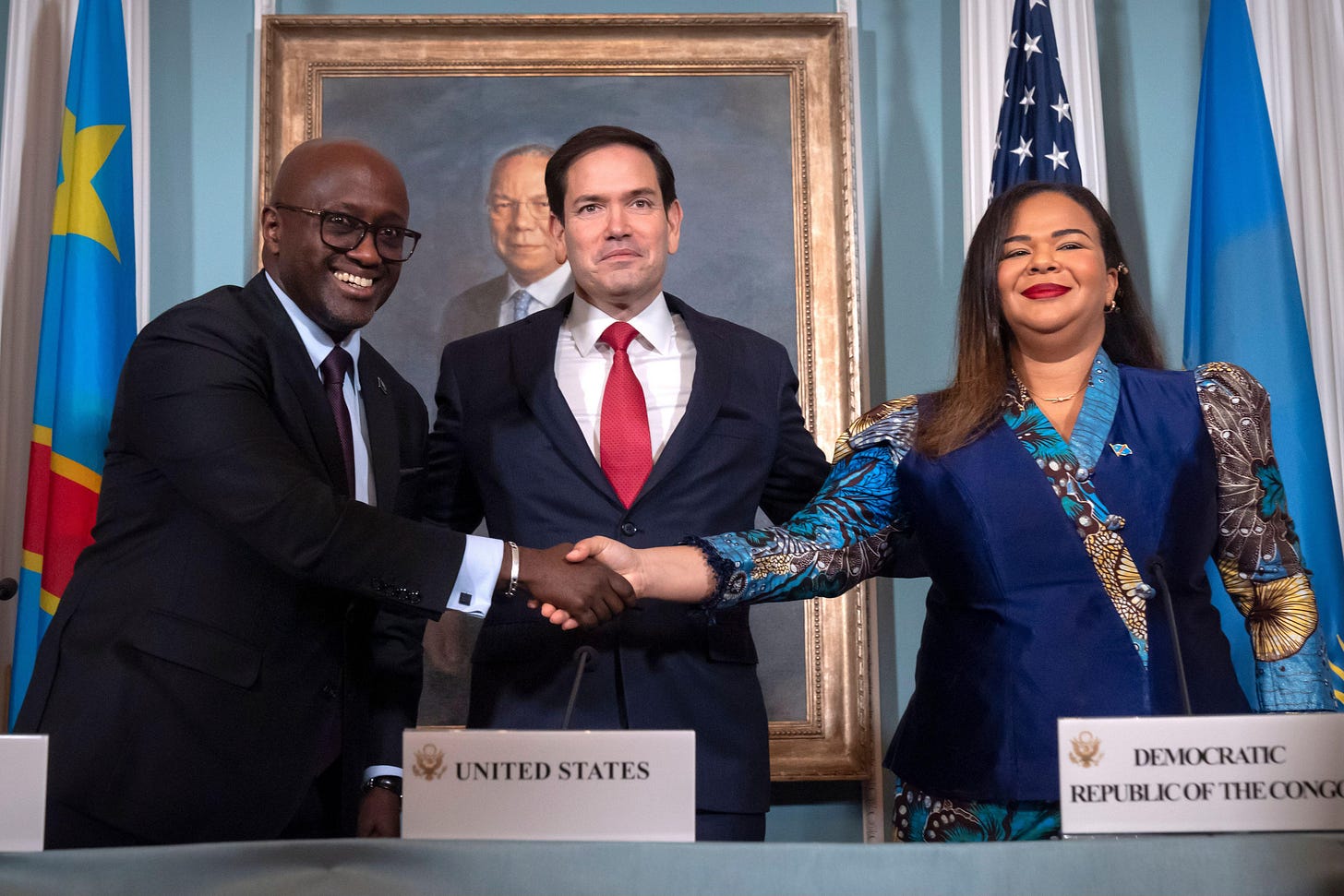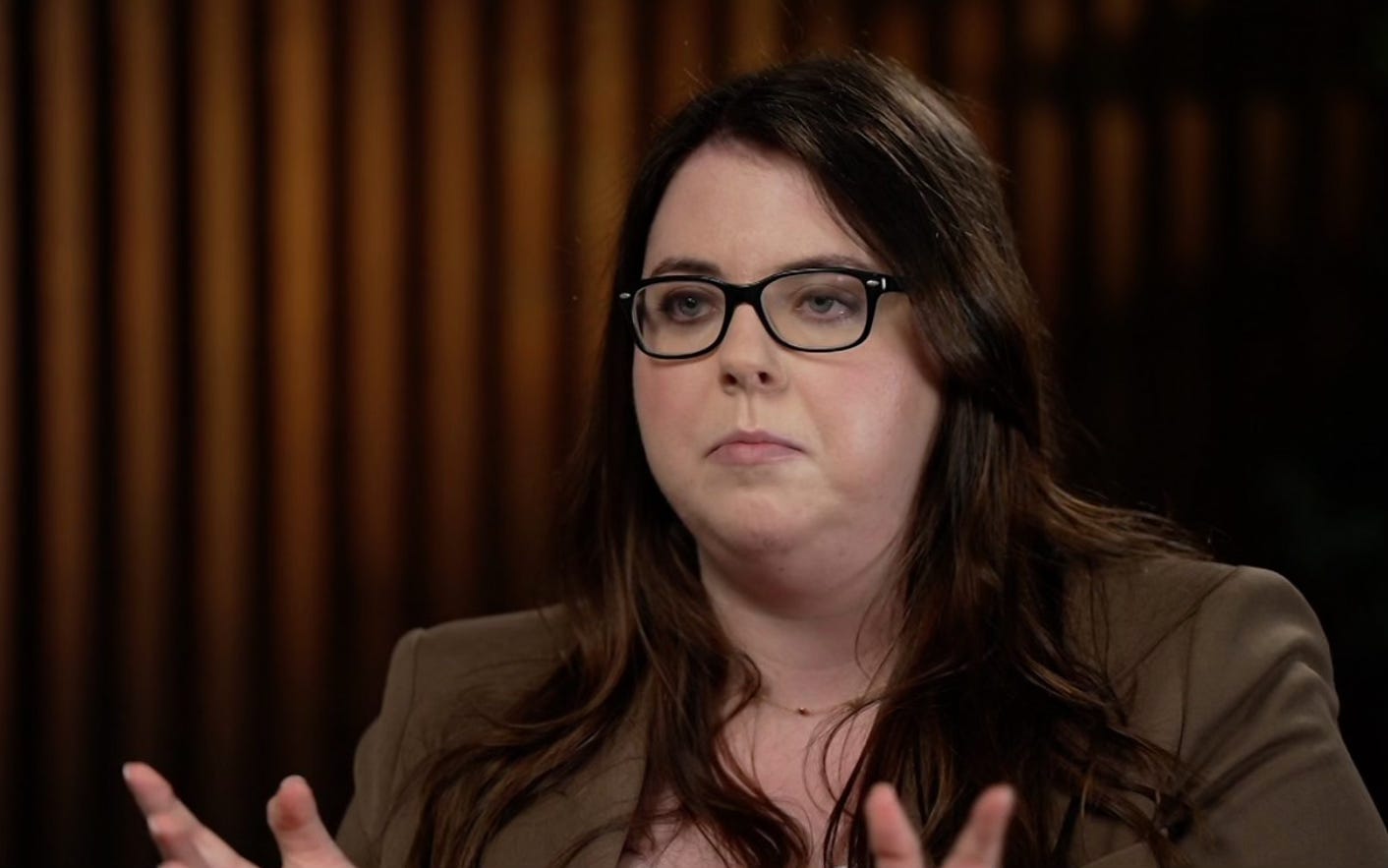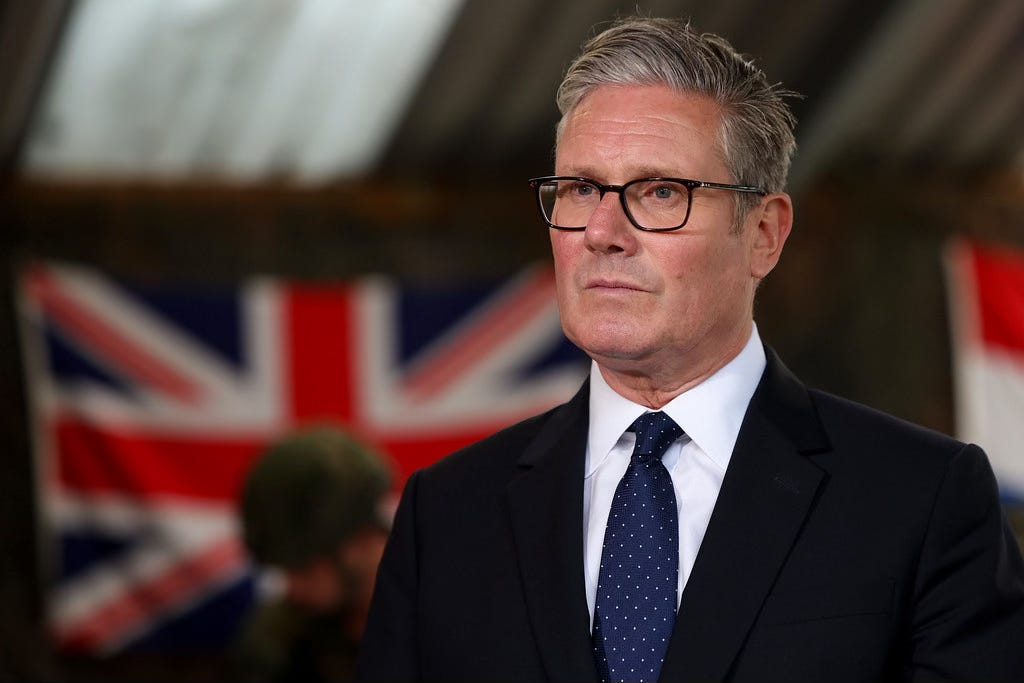
Donald Trump sought to play peacemaker of another continent today, as the foreign ministers of Rwanda and the Democratic Republic of Congo met in Washington to sign a US-brokered deal to halt the bloodshed in eastern Congo.
“We believe that a turning point has been reached with the Democratic Republic of the Congo,” said Rwandan Foreign Minister Olivier Nduhungirehe, ahead of the signing which took place this evening, following months of secret talks.
In late 2021, Rwandan-backed M23 rebels launched an offensive in eastern DRC, which sharply escalated shortly after Trump’s second inauguration. The M23 has since captured two key cities - including Goma, the largest city in eastern Congo - alongside prized mining operations, causing thousands of deaths and displacing millions inside the DRC.
The DRC has long accused the Rwandan government of supporting the M23 rebels, who consist mostly of ethnic Tutsis, including supplying them with arms, training and logistics. Rwandan President Paul Kagame flatly denies lending them any military support, despite ample evidence to the contrary.
The agreement formally signed in Washington today commits Rwanda to ending its M23 support and withdrawing any troops from eastern Congo. Meanwhile, it will commit the DRC to ending all association with the Democratic Forces for the Liberation of Rwanda - an armed group established by ethnic Hutus linked to the massacres of Tutsis in the 1994 Rwanda genocide.
In a joint statement, the three countries said the agreement would include "respect for territorial integrity and a prohibition of hostilities" as well as the disarmament of all "non-state armed groups".
As rebels move steadily deeper into the country, a peace deal will come as an immense relief to Congolese President Felix Tshisekedi. Meanwhile, international lawyer James Tidmarsh argues that Rwandan troops were overextended in eastern DRC and the agreement deal has given Kagame a convenient way out of a proxy war.
But what does Donald Trump stand to gain?
To date, the US President has - excluding his concern over Pretoria’s “white genocide”- shown little interest in Africa, as evidenced by his indifference to the devastating impact of USAID cuts on health across the continent.
And, as we know only too well, the question of “what’s in it for me” is always first and foremost in Donald Trump’s mind.
The answer, in this case, is minerals.
Trump is pushing to end the fighting in eastern Congo in the hope that it will open the region’s mineral riches to American investors. (Hence the reference to a "regional economic integration framework" in today’s joint statement).
The DRC produces roughly 80 per cent of the world’s cobalt, the precious metal present in almost all rechargeable batteries and it is the leading producer of tantalum, an essential component in smartphones.
At present, nearly all of the Congo’s cobalt is mined and processed by China. Trump wants to challenge Beijing’s existing grip on this crucial supply chain.
Notably, much like the Zelensky-proposed US-Ukraine minerals deal, it was not Trump who came up with the idea to promise billions in US investment for Congolese mines. Rather, a leader in crisis took note of the US President’s transactional approach to diplomacy and decided to use it to his advantage. Back in February, Tshisekedi approached Trump’s administration and offered to give US companies access to his country’s vast natural wealth in return for Washington’s help in kicking out the M23.
Others are less happy about Trump’s eagerness to profit off of the DRC’s mineral resources. Denis Mukwege, a gynecologist who shared the 2018 Nobel Peace Prize for his work to end the DRC's epidemic of sexual violence in war, has objected to a deal “legitimising the plundering of Congolese natural resources… to ensure a precarious and fragile peace”.
Some within the country may conclude that giving up natural resources is a price they are willing to pay for regional peace. But, more importantly, will it actually bring peace?
There is no guarantee the deal will hold. Two separate peace processes led by Angola and Kenya failed last year. And, as The Economist points out, even if Rwanda withdraws its troops, “the M23 rebels, who claim to act independently, may not follow”.
What’s more, the M23 is thought to be just one of 120 militias that have thrived in the regional chaos.
Trump’s attempt to play peacemaker could, once again, result in failure.
Conversely, if the agreement does hold, this could be the most significant breakthrough in the war-torn region since the Sun City Agreement of 2003, which was a key step in ending the Second Congo War.
Caitlin Allen
Deputy Editor
ON REACTION TODAY
Neil Collins
No-one's shelling out for BP
Jenny Hjul
Amy Hunt has identified the root causes of a societal crisis
Gerald Warner
Carry on Labour: the farce is intensifying
Gerald Malone
The Met vs Deutsche Oper: both executed the Queen of Spades beautifully
ALSO KNOW
Supreme Court rules in Trump’s favour - The US Supreme Court issued a 6-3 ruling today that will curb federal judges' powers to block President Trump's orders nationwide. The case stems from President Donald Trump's order to end the constitutional right of birthright citizenship for children of undocumented immigrants. Today's ruling will allow that birthright citizenship order to partially go into effect in 30 days.
Israel kills 18 Gazans in strike targeting police - At least 18 people, including a child, have been killed in an Israeli strike which targeted Palestinian police who were distributing flour in a market in the city of Deir al-Balah, according to medical officials. The strike appears to have targeted a security unit set up by the Hamas-led interior ministry to target looters and merchants who sell stolen aid at high prices. The unit, known as Sahm, confiscates stolen aid then distributes it.
Iranian foreign minister admits damage was done to nuclear sites - Iran’s foreign minister Abbas Araghchi admitted to a state broadcast that “excessive and serious” damage was done to the country’s nuclear sites in the US attacks. This is despite Iran’s supreme leader Ayatollah Ali Khamenei claiming the strikes did not disrupt the country’s nuclear programme, following Donald Trump’s assertion that the bombs had “totally obliterated” three nuclear sites.
Police identify suspects in Horizon scandal - Police have identified seven main suspects in the Post Office Horizon scandal inquiry after investigating over 45 individuals. Four of the suspects have been interviewed, but no names of the seven have been revealed as of yet.






